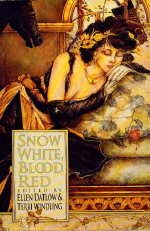While I’m waiting on my interlibrary loan requests to be fulfilled for the 1943 Retro Hugo short fiction finalists, I’ve begun reading the current Hugo short fiction finalists, starting with the short stories. These are easily completed during my lunch break or during half of my daily commute, if an audio edition is available. As of Sunday morning, April 9th, I’ve only got one short story left to read. I didn’t want to wait to post though so you’ll need to come back to this post to see how I rated it and what my preliminary voting order will be for my final ballot later this summer. When I update this post, and the others like it that are forthcoming, I will make a brief update post linking back to the updated original post.
- Update 4/9/2018: Read two of the 1943 Retro Hugo finalists and added comments below.
- Update 4/14/2018: Added links to my GoodReads mini-reviews.
- Update 4/19/2018: Read the last of the 2018 Hugo Finalists (see list below)
- Update 4/28/2018: The final ILL arrived and I was able to read Clement’s “Proof,” which was surprisingly good (for early hard SF) and reminded me of one of my essay‘s from last semester’s Intro to Astronomy class. DAW’s “Mimic” was to entomological for my tastes. That leaves just one 1942 short story left to read.
- Update 5/3/2018: Finished off the short story finalists today by listening to Asimov’s “Runaround” through the audiobook edition of I, Robot.
Note on formatting of this post and those that will follow: You’ll see a nested list with the first level being the title/author/publication/date published of the finalist entry. The second level will be my comments, reviews and ratings. The third level will be my preliminary ranked vote. Here’s an explanation of the Hugo Voting System:
Many people find the Hugo voting system (called “Instant Runoff Voting“) very complicated. While the process is indeed involved, the basic idea is simple and the intention is laudable. Basically the idea is to make sure that the winner has majority support. In ordinary governmental elections it is possible for the winner to be someone that 40% of the people like and 60% of the people hate, because that 60% could not agree among themselves on a candidate. The Hugo voting system is designed to avoid results like that.
— The Voting System, The Hugo Awards
Continue reading “Reading the Hugo Best Short Story Finalists (2018 & 1943)”





